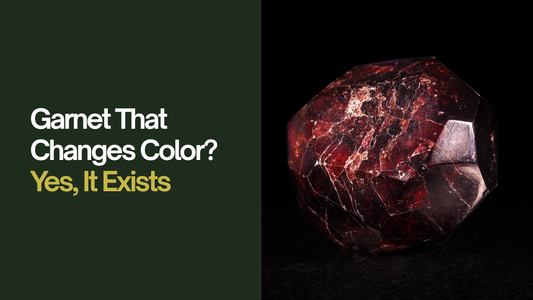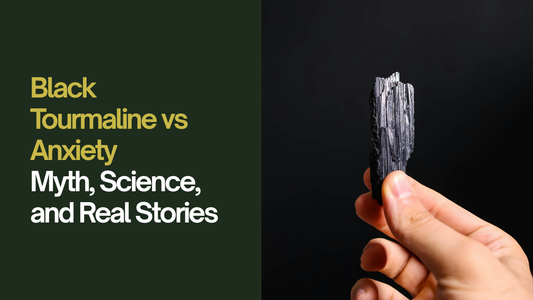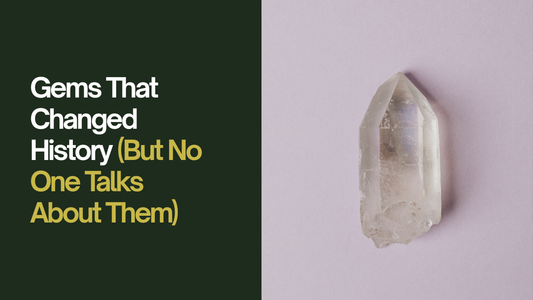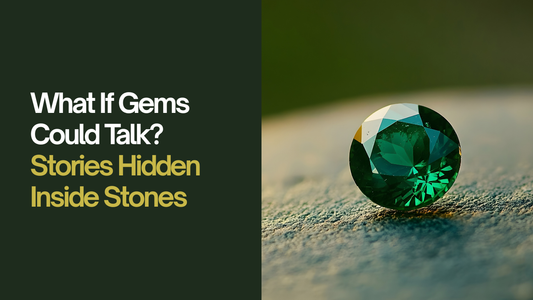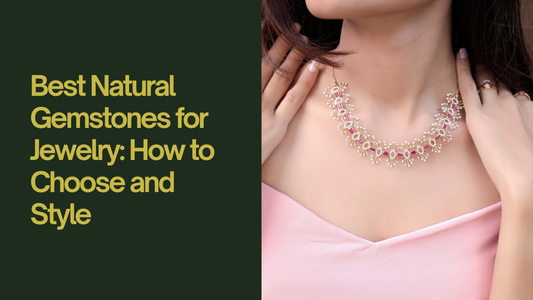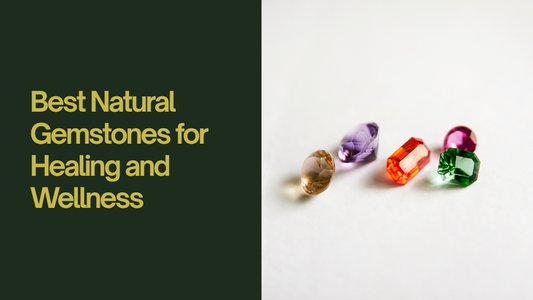
The Best Earrings for Sensitive Ears | Recommended Metal and Guide
We know how frustrating it is to find that perfect pair of earrings, but within hours of wearing them, your ears turn red, getting itchy and swollen. Now you can never wear those beauties again.
Some people with sensitive ears opt to avoid the hassle of earrings altogether. But that isn't the only option! There are specific materials, earring styles, and earring backing types that work best when you experience sensitivity.
Let's take a deep dive into what earrings are best for sensitive ears so you aren't forced to forgo earrings altogether.
Which Hypoallergenic Metals Are Recommended for Sensitive Ears?
Certain metals are better suited for individuals with sensitive ears than others. Here are three hypoallergenic options that are generally well-tolerated:
1. Sterling Silver
Not many people know this, but pure silver is too malleable and soft to make jewelry. That is why sterling silver was developed. Sterling silver is a material used to make jewelry that contains a composition of silver combined with other materials. Pure silver is hypoallergenic. It's the metals it's combined with that you need to watch out for!
The higher the percentage of pure silver contained in a pair of silver earrings, the less likely it is to irritate your skin. Look for the 925 stamp when you purchase sterling silver earrings. This stamp refers to the earrings' silver purity percentage of 92.5%. And, as we said, the higher, the better.
2. Gold
Gold is an opulent, precious, neutral metal to which very few people are allergic - making it a safe bet for many sensitive jewelry wearers. As with sterling silver, the higher the karat of your chosen pair of gold earrings, the purer the gold. In turn, they are less likely to cause an allergic reaction.
Wear gold earrings which are 9ct or higher to reduce your risk of skin irritations and allergic reactions to your earrings. For an even more hypoallergenic option, consider white gold earrings. White gold is an alloy of yellow gold and other metals, like silver or palladium, that give it its silvery hue.
3. Platinum
Now, platinum is the least reactive of them all! Albeit the most expensive. Platinum earrings are some of the best earrings for sensitive earrings. It is, therefore, unfortunate that they're quite rare and difficult to find.
Platinum is extraordinarily resistant to corrosion. Therefore, if you're looking for a pair to wear day in and day out and find a pair of gorgeous platinum earrings, we recommend making the investment. It'll be worth it.
What Type of Earrings Are Best for Sensitive Ears?
At the end of the day, the best earring styles are simply the ones that are gentle on your skin and are gorgeous to look at. Let's discuss three earring styles that suit sensitive ears.
1. Stud Earrings
Simple, safe, and versatile are your buzzwords when it comes to stud earrings. For example, moissanite diamond earrings are an excellent option for those with sensitive ears. They're generally not elaborate or heavy and are unlikely to cause any irritation. While their lightness allows you to forget you're even wearing them, it also gives your outfit a sense of elegance and timelessness. Just ensure you have a secure backing that doesn't allow them to twist or move, which can irritate your ear.
2. Hoop Earrings With a Small Diameter
Hoop earrings are a statement piece. An iconic must-have, if you will. But if you have sensitive ears, you may have chosen to avoid hoop earrings altogether and deny yourself their stunning beauty. However, have you tried opting for a pair of silver hoop earrings with a small diameter?
Hoop earrings with a small diameter tend to hug your ears. So, while larger hoops could be heavy and uncomfortable, smaller gold hoop earrings could be a lifesaver for an individual with sensitive ears. They'll hug your ears and stay in position rather than tossing and turning your ears red with friction.
3. Lightweight Dangle Earrings
Our 3rd and final recommendation is lightweight dangle earrings. Silver drop earrings add a touch of charm and elegance to any outfit. But the larger ones can weigh your earlobes down and make you want to take them out while trying to have a pleasant night on the town. We recommend opting for a more lightweight pair of dangle earrings. Therefore, you can still feel glamorous while maintaining a high level of comfort.
What Are the Common Causes of Earring Sensitivity?
While the specific metals and materials used in earrings are the primary culprits behind earring sensitivity, there are a few other factors that can contribute to the problem. Firstly, the thin and delicate skin of the earlobes makes them particularly prone to irritation. The constant friction and pressure from wearing earrings can also exacerbate sensitivity over time.
Additionally, individual allergies and sensitivities play a major role. Some people may develop an allergy to certain metals, like nickel, even if they haven't had issues in the past. The buildup of oils, bacteria, and other irritants on earrings can also inflame the skin. So proper cleaning and hygiene are crucial for sensitive ears.
Choosing the Right Earrings for Sensitive Ears
Since the most common cause of sensitive ears is likely a nickel allergy, the first thing to do is avoid earrings that have nickel in the posts. Don't just assume that earrings marked hypoallergenic will work. Although this means they are less likely to cause an allergic reaction, there is unfortunately no standard in the jewelry industry when it comes to what hypoallergenic means.
To be safe, the best earrings for sensitive ears are ones marked nickel-free. Some earrings are called hypoallergenic because the nickel in their posts are coated with another material, but over time, the coating can come off, and repeated wear may still irritate your ears.
The best earrings for sensitive ears are generally made with gold, platinum, or silver. Make sure you buy earrings that are 14k gold or above or sterling silver 925 to avoid the possibility of nickel being mixed in. However, you might want to steer clear of pure 24k gold unless you're sensitive to even the most minute amounts of nickel because of how soft and malleable the metal is.
Other materials that work for sensitive ears include stainless steel, titanium, plastic, and niobium. However, some of these materials are cheaper and more breakable, and can be more difficult to find.
How Do You Know If You Have Sensitive Skin?
The symptoms of earring sensitivity are usually pretty clear - redness, itching, swelling, and rashes around the earlobes. These tend to appear within 12-48 hours of wearing the offending jewelry. Some people may also experience dry, patchy skin in the area of contact.
If you've never had skin sensitivity issues before, developing an allergic reaction to earrings can still happen. But those with a history of skin, asthma, or other allergies are more prone to experiencing irritation from certain metals and materials.
Determining the exact cause often requires a process of elimination, such as using a patch test to identify specific allergies. But being aware of the most common culprits, like nickel, can help you make more informed choices about the earrings you wear.
Final Thoughts
Now you are privy to what the experts know about wearing jewelry when you have sensitive ears. Use all your newly-acquired knowledge on the best materials, earring types, and earring backings for sensitive ears. Experiment with different earrings styles while keeping our tips in mind. Most importantly, have fun! A world of safe earring possibilities awaits you.

